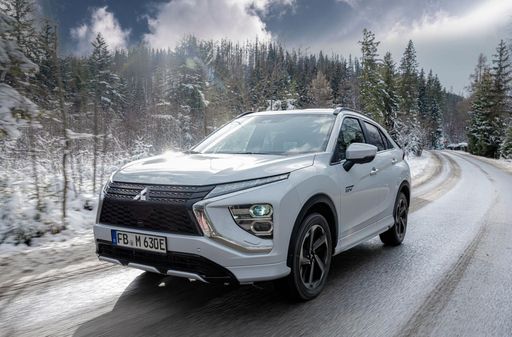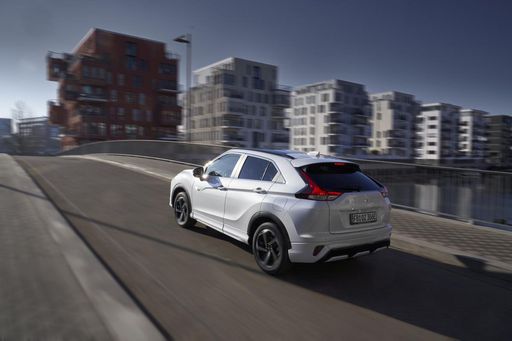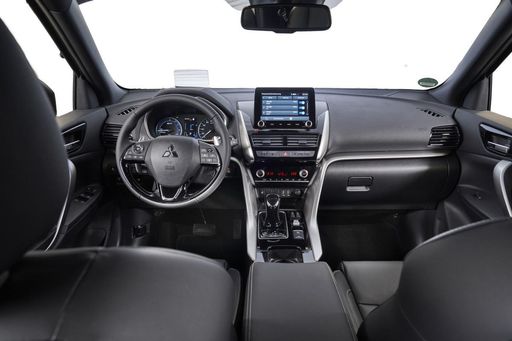Hyundai Kona vs Mitsubishi Eclipse Cross - Differences and prices compared
Costs and Efficiency:
Price and efficiency are often the first things buyers look at. Here it becomes clear which model has the long-term edge – whether at the pump, the plug, or in purchase price.
Hyundai Kona has a clearly advantage in terms of price – it starts at 23100 £, while the Mitsubishi Eclipse Cross costs 41100 £. That’s a price difference of around 18077 £.
In terms of energy consumption, the advantage goes to the Hyundai Kona: with 14.60 kWh per 100 km, it’s slightly more efficient than the Mitsubishi Eclipse Cross with 16.70 kWh. That’s a difference of about 2.10 kWh.
As for range, the Mitsubishi Eclipse Cross performs somewhat better – achieving up to 635 km, about 121 km more than the Hyundai Kona.
Engine and Performance:
Power, torque and acceleration are the classic benchmarks for car enthusiasts – and here, some clear differences start to show.
When it comes to engine power, the has a edge – offering compared to . That’s roughly more horsepower.
In acceleration from 0 to 100 km/h, the Hyundai Kona is slight quicker – completing the sprint in 7.80 s, while the Mitsubishi Eclipse Cross takes 7.90 s. That’s about 0.10 s faster.
In terms of top speed, the Hyundai Kona performs somewhat better – reaching 210 km/h, while the Mitsubishi Eclipse Cross tops out at 170 km/h. The difference is around 40 km/h.
There’s also a difference in torque: Mitsubishi Eclipse Cross pulls to a small extent stronger with 300 Nm compared to 265 Nm. That’s about 35 Nm difference.
Space and Everyday Use:
Whether family car or daily driver – which one offers more room, flexibility and comfort?
Seats: offers more seating capacity – vs .
In terms of boot space, the Mitsubishi Eclipse Cross offers barely noticeable more room – 487 L compared to 466 L. That’s a difference of about 21 L.
In maximum load capacity, the Mitsubishi Eclipse Cross performs noticeable better – up to 1670 L, which is about 370 L more than the Hyundai Kona.
Who wins the race?
The Hyundai Kona proves to be leads convincingly overall and therefore becomes our DriveDuel Champion!
Hyundai Kona is the better all-rounder in this comparison.
 @ Hyundai Motor Company
@ Hyundai Motor Company
Hyundai Kona
Costs and Consumption
View detailed analysis
Engine and Performance
View detailed analysis
Dimensions and Body
View detailed analysis
Hyundai Kona
The Hyundai Kona wears its personality on the outside with bold styling and sprightly handling that turns city driving into something a little more fun than a commute. It blends practical space, modern tech and sensible running costs into a compact, stylish package — a smart pick if you want flair without paying luxury prices.
details @ Hyundai Motor Company
@ Hyundai Motor Company
 @ Hyundai Motor Company
@ Hyundai Motor Company
 @ Hyundai Motor Company
@ Hyundai Motor Company
 @ Hyundai Motor Company
@ Hyundai Motor Company
Mitsubishi Eclipse Cross
Mitsubishi Eclipse Cross combines coupe-like looks with crossover practicality, so you get style without the showroom attitude. It’s an affable daily driver that hides a few quirks behind a confident grin, making it an easy pick for buyers who want personality without fuss.
details @ Mitsubishi Motors Corporation
@ Mitsubishi Motors Corporation
 @ Mitsubishi Motors Corporation
@ Mitsubishi Motors Corporation
 @ Mitsubishi Motors Corporation
@ Mitsubishi Motors Corporation
 @ Hyundai Motor Company
@ Hyundai Motor Company
|
 @ Mitsubishi Motors Corporation
@ Mitsubishi Motors Corporation
|
|
|
|
Costs and Consumption |
|
|---|---|
|
Price
23100 - 41600 £
|
Price
41100 - 48200 £
|
|
Consumption L/100km
4.6 - 7 L
|
Consumption L/100km
-
|
|
Consumption kWh/100km
14.6 - 16.8 kWh
|
Consumption kWh/100km
16.7 - 16.9 kWh
|
|
Electric Range
377 - 514 km
|
Electric Range
635 km
|
|
Battery Capacity
1.3 - 65.4 kWh
|
Battery Capacity
-
|
|
co2
0 - 163 g/km
|
co2
0 g/km
|
|
Fuel tank capacity
38 - 47 L
|
Fuel tank capacity
-
|
Dimensions and Body |
|
|---|---|
|
Body Type
SUV
|
Body Type
SUV
|
|
Seats
5
|
Seats
5
|
|
Doors
5
|
Doors
5
|
|
Curb weight
1370 - 1773 kg
|
Curb weight
-
|
|
Trunk capacity
466 L
|
Trunk capacity
487 L
|
|
Length
4350 - 4385 mm
|
Length
4489 mm
|
|
Width
1825 mm
|
Width
1908 mm
|
|
Height
1580 - 1585 mm
|
Height
1571 mm
|
|
Max trunk capacity
1300 L
|
Max trunk capacity
1670 L
|
|
Payload
420 - 490 kg
|
Payload
-
|
Engine and Performance |
|
|---|---|
|
Engine Type
Electric, Petrol, Full Hybrid
|
Engine Type
Electric
|
|
Transmission
Automatic, Manuel
|
Transmission
Automatic
|
|
Transmission Detail
Reduction Gearbox, Manual Gearbox, Dual-Clutch Automatic
|
Transmission Detail
Reduction Gearbox
|
|
Drive Type
Front-Wheel Drive, All-Wheel Drive
|
Drive Type
Front-Wheel Drive
|
|
Power HP
115 - 218 HP
|
Power HP
218 HP
|
|
Acceleration 0-100km/h
7.8 - 11.9 s
|
Acceleration 0-100km/h
7.90 s
|
|
Max Speed
162 - 210 km/h
|
Max Speed
170 km/h
|
|
Torque
200 - 265 Nm
|
Torque
300 Nm
|
|
Number of Cylinders
3 - 4
|
Number of Cylinders
-
|
|
Power kW
85 - 160 kW
|
Power kW
160 kW
|
|
Engine capacity
998 - 1598 cm3
|
Engine capacity
-
|
General |
|
|---|---|
|
Model Year
2024 - 2025
|
Model Year
2025
|
|
CO2 Efficiency Class
A, D, C, E, F
|
CO2 Efficiency Class
A
|
|
Brand
Hyundai
|
Brand
Mitsubishi
|
Is the Hyundai Kona offered with different drivetrains?
Available configurations include Front-Wheel Drive or All-Wheel Drive.
The prices and data displayed are estimates based on German list prices and may vary by country. This information is not legally binding.
